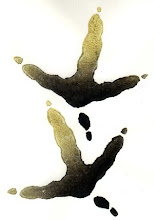Wednesday, March 31, 2010
Why I bought a camper . . .
For more Ruffy the Grouse video, check out:
Tuesday, March 30, 2010
Hitler Learns There's No Grouse Camp This Year
blogging is the real blood sport
Monday, March 29, 2010
Friday, March 26, 2010
Thursday, March 25, 2010
Hitler Doesn't Like Quality Deer Management
http://www.sdnn.com/sandiego/2010-02-19/things-to-do/youtube-hitler-parodies-are-viral-craze
Turns out there's even one about Quality Deer Management. Apparently Hitler wasn't a fan (You may want to hit the full screen view button to read the subtitles):
There's also another one about deer management in Pennsylvania.
Sunday, March 21, 2010
Saturday, March 20, 2010
Friday, March 19, 2010
Tuesday, March 16, 2010
Celebrity
If you want, allow the podcast #156 to load and then scroll to minute 32:00 which is when my interview starts. Sound quality varies a bit, but there it is if you're interested.
Saturday, March 13, 2010
More uses for mouse thumb puppets
Friday, March 05, 2010
Wednesday, March 03, 2010
Bias at National Pretentious Radio????
Pete, I know your entire worldview is NPR-formed, but dude, you've got to get a different radio station. imhoCivil Liberties Advocates, Not ‘Gun Advocates’
Posted By David Boaz On March 2, 2010 @ 10:54 am In General, Law and Civil Liberties | Comments Disabled
In this NPR story [1] Nina Totenberg gives both sides their say. But twice she refers to the people advocating Second Amendment rights as “gun advocates” (and once as “gun rights advocates”). That’s not the language NPR uses in other such cases. In 415 NPR stories on abortion, I found only one reference to “abortion advocates,” in 2005. There are far more references, hundreds more, to “abortion rights,” “reproductive rights,” and “women’s rights.” And certainly abortion-rights advocates would insist that they are not “abortion advocates,” they are advocates for the right of women to choose whether or not to have an abortion. NPR grants them the respect of characterizing them the way they prefer.
Similarly, NPR has never used the phrase “pornography advocates,” though it has run a number of stories on the First Amendment and how it applies to pornography. The lawyers who fight restrictions on pornography are First Amendment advocates, not pornography advocates.
And the lawyers who seek to guarantee our rights under the Second Amendment to the U.S. Constitution should be called Second Amendment advocates, or advocates of the right to self-defense, or civil liberties advocates. Or even “gun rights advocates,” as they do advocate the right of individuals to choose whether or not to own a gun. But not “gun advocates.”
Article printed from Cato @ Liberty: http://www.cato-at-liberty.org
URL to article: http://www.cato-at-liberty.org/2010/03/02/civil-liberties-advocates-not-gun-advocates/

Monday, March 01, 2010
You can thank a philosopher . . .
Wittgenstein rocks! Words are his metier.Take, for instance, the way Google’s engine learns which words are synonyms. “We discovered a nifty thing very early on,” Singhal says. “People change words in their queries. So someone would say, ‘pictures of dogs,’ and then they’d say, ‘pictures of puppies.’ So that told us that maybe ‘dogs’ and ‘puppies’ were interchangeable. We also learned that when you boil water, it’s hot water. We were relearning semantics from humans, and that was a great advance.”
But there were obstacles. Google’s synonym system understood that a dog was similar to a puppy and that boiling water was hot. But it also concluded that a hot dog was the same as a boiling puppy. The problem was fixed in late 2002 by a breakthrough based on philosopher Ludwig Wittgenstein’s theories about how words are defined by context. As Google crawled and archived billions of documents and Web pages, it analyzed what words were close to each other. “Hot dog” would be found in searches that also contained “bread” and “mustard” and “baseball games” — not poached pooches. That helped the algorithm understand what “hot dog” — and millions of other terms — meant. “Today, if you type ‘Gandhi bio,’ we know that bio means biography,” Singhal says. “And if you type ‘bio warfare,’ it means biological.”














